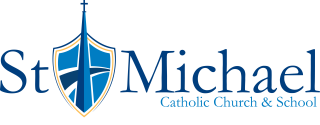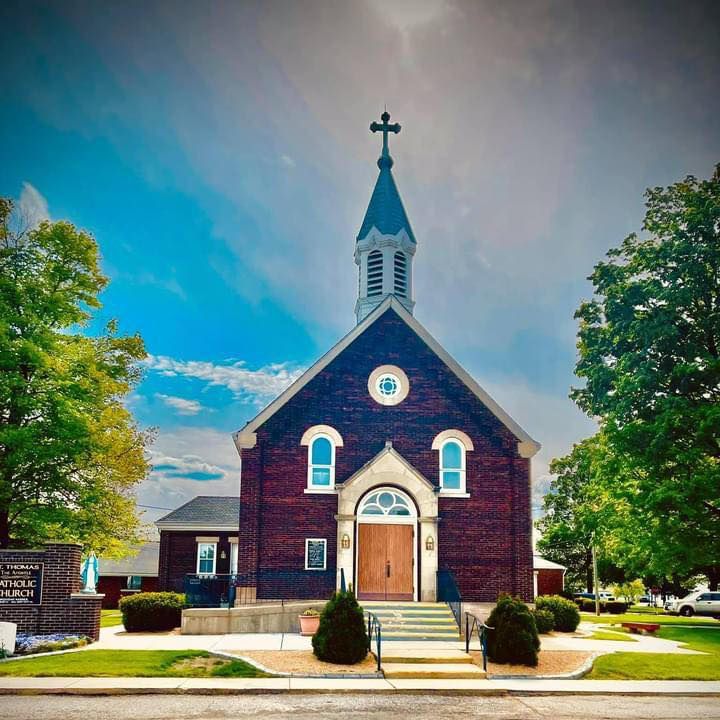Eucharist
The Eucharist is "the source and summit of the Christian life." The other sacraments, and indeed all ecclesiastical ministries and works of the apostolate, are bound up with the Eucharist and are oriented toward it. For in the blessed Eucharist is contained the whole spiritual good of the Church, namely Christ himself, our Pasch. (CCC 1324)
The word Eucharist comes from the Greek word eucharistein, which means “thanksgiving.” It is the memorial sacrifice of Christ’s body and blood, presented under the form of bread and wine, which is offered to the Father for the forgiveness of sins. When we receive the Eucharist in Holy Communion, we say "Amen" to declare that we believe that the bread and wine have been transformed into the Body & Blood of Jesus Christ. Because of this belief, all Catholics are asked to make sure that they have properly prepared themselves before they receive the Eucharist by making sure they are free of grave, or mortal, sin. Catholics who are not properly prepared to receive Communion and non-Catholics may come forward in the procession, but are asked to cross their arms upon their chest to show that they will not be receiving the Eucharist.
Extraordinary
Ministers of
Holy Communion
The ordinary ministers of Holy Communion are bishops, priests, and deacons. However, most parishes also need extraordinary ministers in order for all the faithful to receive the sacrament. Extraordinary ministers distribute communion during Mass and to those in the hospital, nursing home, or who are homebound. Click here for more information on becoming an Extraordinary Minister of Holy Communion.

